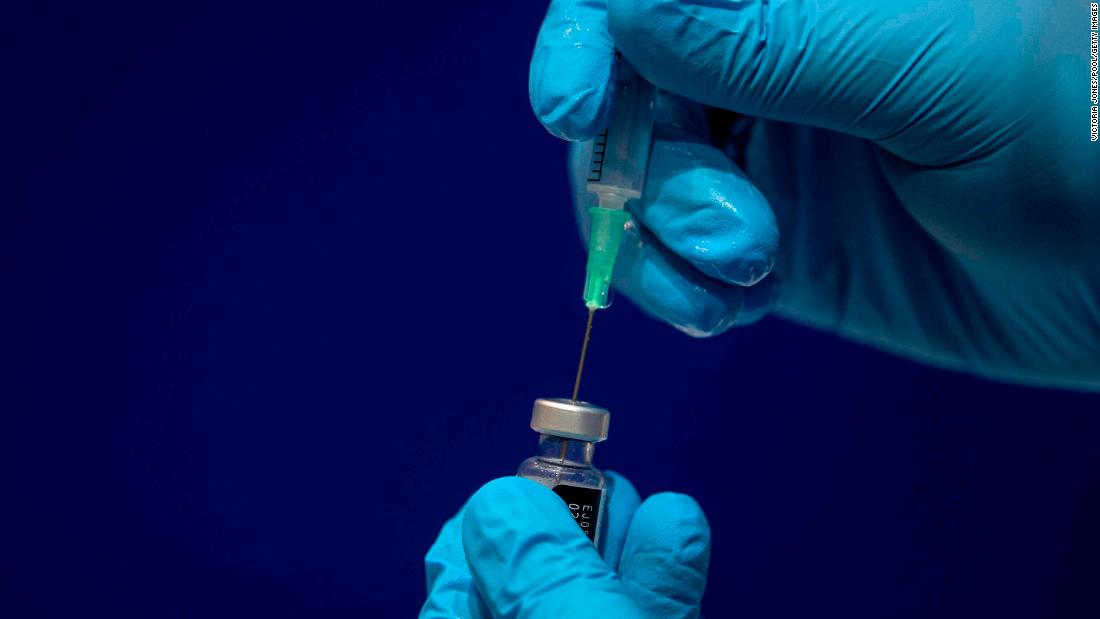
(CNN)A new study of breakthrough Covid-19 infections finds that vaccines not only reduce the risk of severe disease and hospitalization, but can lower the odds of having long-term Covid-19 symptoms too.
"We found that the odds of having symptoms for 28 days or more after post-vaccination infection were approximately halved by having two vaccine doses. This result suggests that the risk of long COVID is reduced in individuals who have received double vaccination, when additionally considering the already documented reduced risk of infection overall," researchers wrote in the study published on Wednesday in the journal The Lancet Infectious Diseases.
The researchers, from institutions in the United States and the United Kingdom, analyzed self-reported data from adults in the UK who shared any Covid-19 symptoms using a mobile phone app called the Covid Symptom Study. The researchers examined those self-reported symptoms from app users who said they received a Covid-19 vaccine between December 8, 2020, and July 4, 2021 -- and compared the symptoms of the vaccinated with those who were unvaccinated.
The data included more than 1.2 million adults who reported receiving a first dose of vaccine, and among them, 0.5%, or 6,030, tested positive for a breakthrough coronavirus infection after receiving that first dose. Among nearly 1 million adults who reported receiving a second dose of vaccine, only 0.2% or 2,370 tested positive after completing both doses.
Some groups were more vulnerable to breakthrough infections than others, the researchers found, especially following their first vaccine dose: people 60 and older who were considered frail, and people living in "highly deprived areas," such as densely populated communities. People who were not obese had lower odds of infection following their first vaccine dose, the data showed.
But overall, the researchers found that being vaccinated was associated with fewer reports of symptoms across all age groups if someone contracted the coronavirus.
Vaccination, compared with no vaccination, was associated with reduced odds of Covid-19 hospitalization or having more than five symptoms in the first week of illness following a first or second dose, the researchers found, and there were reduced odds of long-term symptoms lasting 28 days or more following a second vaccine dose.
"Almost all individual symptoms of COVID-19 were less common in vaccinated versus unvaccinated participants," the researchers wrote. "More people in the vaccinated than in the unvaccinated groups were completely asymptomatic."
As for long-term symptoms of Covid-19, some experts not involved in the new study note that there is still much to learn.
Get CNN Health's weekly newsletter
Sign up here to get The Results Are In with Dr. Sanjay Gupta every Tuesday from the CNN Health team.
"Long COVID is explored in this study by assessing the proportion of cases with symptoms persisting for more than 28 days. However long COVID is still poorly understood and the persistence of symptoms post infection, and their severity, remains to be explored," Penny Ward, a visiting professor in pharmaceutical medicine at King's College London, who wasn't involved with the study, said in a written statement distributed by the UK-based Science Media Centre on Wednesday.
"It is however encouraging that the overall proportion of cases with persistent symptoms is reduced in patients that were previously fully vaccinated, which taken together with the milder overall illness and reduction in need for hospital care demonstrates the additional worth of vaccination in reducing severity of illness for individuals," Ward said, and reducing the burden on health care systems by lowering the number of people needing hospital care.
Health - Latest - Google News
September 02, 2021 at 10:22PM
https://ift.tt/3zKTq6b
Being fully vaccinated reduces odds of long-term Covid-19 symptoms by half, UK study suggests - CNN
Health - Latest - Google News
https://ift.tt/2zrj9Ud
Bagikan Berita Ini














0 Response to "Being fully vaccinated reduces odds of long-term Covid-19 symptoms by half, UK study suggests - CNN"
Post a Comment